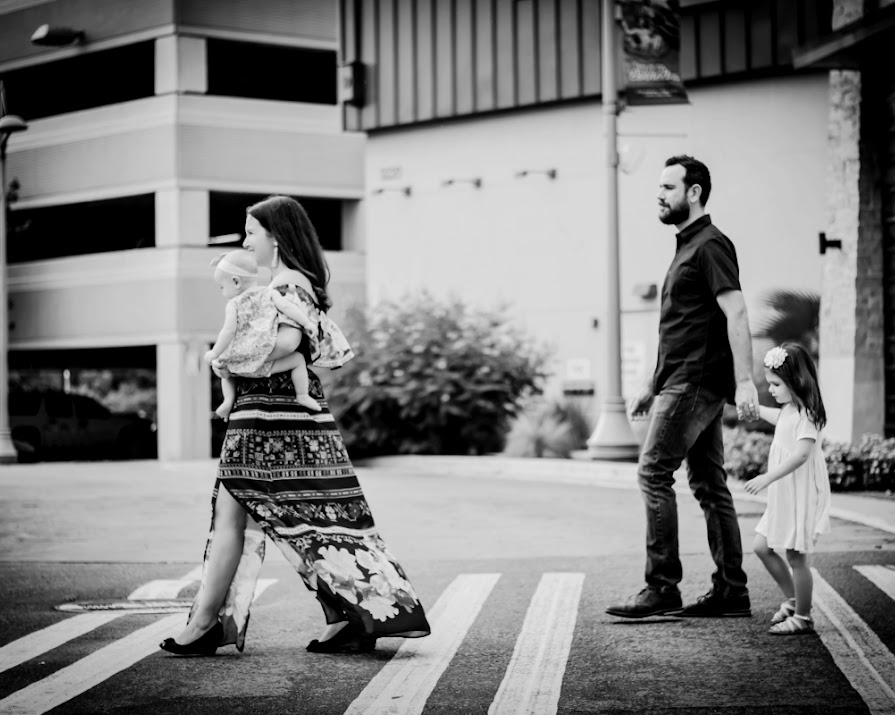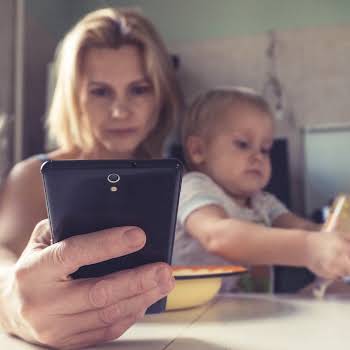By Jessie Collins
22nd Feb 2018
22nd Feb 2018
Breaking up is hard to do, but it’s much more complicated when there are kids are involved. Jessie Collins finds out what are the dos and don’ts of separating with kids
According to recent statistics, the divorced population in Ireland has grown from 0.4 per cent (9,787 people) to 2.8 percent (103,895) since 1996. Though the numbers are not huge, it is a jump of a whopping 800 percent. And things look set to keep going in that direction, with a more buoyant economy making it more possible for couples who previously found themselves trapped in a financially dependent stalemate, neither being able to afford to move out or move on.
Though the realisation that the relationship is not going to work is a loss for the couple, factor in children into the equation and the complications are multiplied. Deciding to split up the family can seem almost an impossibility, and however negative living around a loveless union can be, sometimes both staying a unit can seem like the lesser of two evils.
Despite the obvious challenges though, there are ways to lessen the pain and the upset that separation can cause. Madeleine Connolly, a senior psychotherapist, says the best outcomes for children is that they are no longer exposed to conflict between their parents. “Parents think they’re shielding them but they can’t really. Their children pick up things. So if they keep their eye on the longer term aim, which is that the children will come through the process and will be okay once the children aren’t exposed to ongoing conflict.”
Letting Go Of Anger
It’s really important that both parents let go of any residual hostility, says Connolly. “It’s tough for the parents to really try and cooperate as much as possible in terms of the parenting relationship but is so important. It affects how quickly the kids healing process starts. Both need to let go of the events and any anger.”
This can then lead to establishing a new narrative says psychotherapist, Michael Flanagan, who has personally navigated a separation, and starting a second family. It is important that this new narrative is one that doesn’t blame, and protects children from negativity. “It can happen that each person in the relationship develops a new narrative of the other. So often one is blaming of the other, and often the other is critical of the other. Children don’t have those narratives with parents. They have usually pretty positive opinions of their mother and father. Allowing them to maintain their own narrative of each parent as good and fatherly or motherly or loving or kind and generous is crucial – they don’t want to lose that.”
Acknowledging The Loss
This is helped, says Connolly by not crowding kids with your own emotions, and letting them really air theirs. “Generally, it’s good for children that they express the grief from the anger and sadness. They can feel responsible for it sometimes but parents just need to stay tuned in with them. Just be really honest with them, particularly if there’s no hope of reconciliation. They need to know that clearly.” Flanagan agrees. “If you could condense all that down to one thing, it’s basically children’s voices need to be heard.”
Living Apart
Once the narrative is established, the next phase is to create a solid routine, and set new ground rules for the new set. “Kids like certainty,” states Flanagan, “they like routine, they like to know where they’re at. So I just think being clear about the new kind of roles, or the new living arrangements, or the new access arrangements, so kids are not wondering, ‘Am I seeing dad this week, am I seeing mom this week, what day is it? How long is it going to be, where is it going to be?’ I think being clear with kids about the new roles and the new routines is helpful for them.”
“Be clear about plans are for the holidays.” agrees Connolly, “What’s Christmas going to be like? The things that children worry about. And don’t use them as a go-between. They’re not there to carry messages to the other parent. You have to do that together. They shouldn’t be worried about their parents worries. It’s not where they’re at in their lives. It’s not their problem.”
Difficult Timings
Parents breaking up at crucial times in a child’s development can add to the stress, the beginning of adolescence being one of the most sensitive. “It’s a hard time in their lives any way,” says Connolly, “and they can be very angry, feeling that they have to take sides. Which really isn’t in the long term good for them.” The focus here, she says, is to try and keep the connection with both parents, “and really keep the connection with your teen, don’t just say “they’re okay, it’s only adolescence.” Really try and spend some good time with them. Do stuff with them together. Don’t just assume they’re going to be okay, because not all children understand.”
Flanagan agrees. “The time around transitioning to secondary school, and those next few years where you’re forming peer relationships, you’re finding a little bit more about yourself, you’re developing your identity, your sexual identity, that’s a really tricky time for kids. So to throw a real loss into that equation can be quite problematic.” Here limits are key, says Connolly. “The parents have to really work together, still supporting each other while also setting limits so the rules are mirrored in both homes, and there is no attempt to play each parent off the other also.”
Being Heard
Overall, says Brennan, the biggest thing you can do as a parent is actually the most passive of all, but the most effective. “Let them be heard. The biggest (thing) is children being able to express how they feel about it. Sometimes they can’t so it needs to be encouraged. It’s a defense that they’re not expressing themselves or what’s going on. If the parents try and open the lines of communication, or if it’s not the parents, I think children need an opportunity to talk to somebody.”
Brennan recommends reaching out also, with support groups like Rainbows Ireland, a free service for children and young people who have either been bereaved or through separation and divorce. “Here’s the thing: it doesn’t have to be anything too serious, but some opportunity for them to express themselves and express how they’re feeling is really valuable.”
Connolly agrees. “Ask for support, if they want extra support, then definitely give it. Make sure there are people they can talk to who are there for them. Each parent needs to find their own support. So it’s at their weakest moments they need to be strongest. And a good divorce is one where children can be comfortable and maintain their relationship with both of their parents and their extended family network. They need something, some support to help them through all that. It’s very hard. People get very low, they get upset.” You need to bear in mind too though, says Connolly, that children are naturally resilient, and managed with respect, it is possible to make it work. “It’s really tough, but it absolutely does get gets easier, and you need to remind yourself of that all the time.”






















